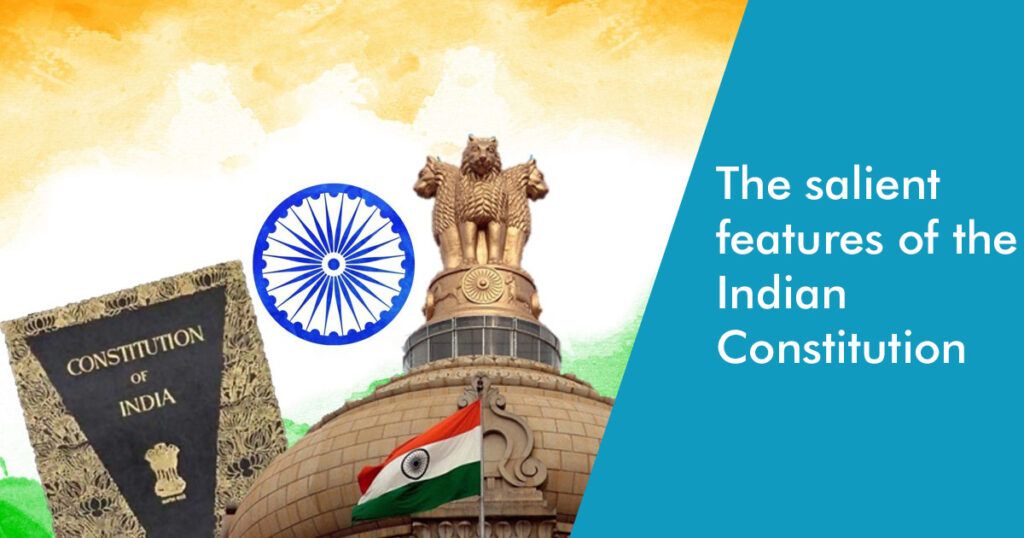The salient features of the Indian Constitution include:
- Federal Structure – The Indian Constitution establishes a federal system of government, where powers are divided between the central government and the state governments.
- Fundamental Rights – The Constitution guarantees six fundamental rights to all citizens, including the right to equality, freedom of speech and expression, religion, life and liberty, and equality before the law.
- Directive Principles of State Policy – The Constitution lays down certain directive principles that serve as guidelines for the government in framing and implementing policies for the welfare of the people.

- Separation of Powers – The Constitution provides for a clear separation of powers between the legislative, executive, and judicial branches of government, with each branch performing distinct functions and exercising checks and balances over the others.
- Independent Judiciary – The Constitution establishes an independent judiciary, which acts as the guardian of the Constitution and ensures that the laws are applied fairly and consistently.
- Universal Adult Franchise – The Constitution provides for universal adult franchise, giving every citizen over the age of 18 the right to vote.
- Secularism – The Constitution guarantees the right to freedom of religion and establishes India as a secular state, where no religion is given preference over another.
- Single Citizenship – The Constitution provides for a single citizenship for all citizens of India, regardless of their place of birth or residence.
These salient features make the Indian Constitution a progressive and inclusive document that ensures the protection of individual rights and freedoms, while also serving as a framework for the efficient and effective functioning of the government.



